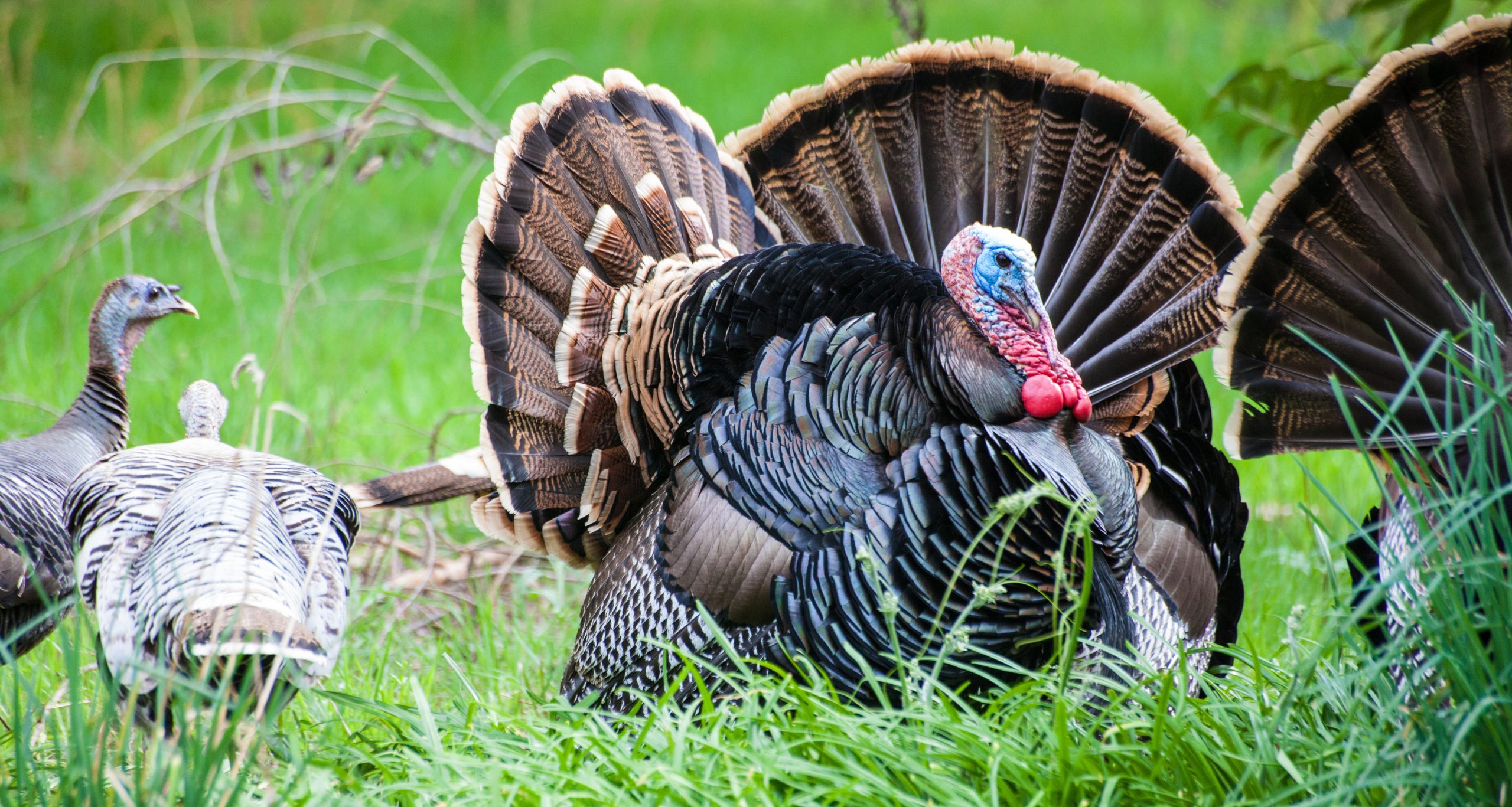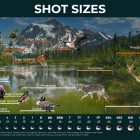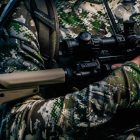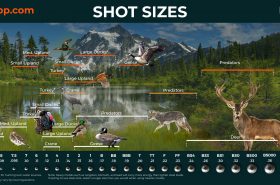Things are thawing out, Spring is in the air, and smiles are gripping the faces of Turkey hunters across the Nation. It’s that time of year, where hunters dawn their camo and head out in the woods to take down a big Gobbler. If you’ve ever gone Turkey hunting, you know this is far easier said than done. Many first time hunters may think: “hey, these birds are big, slow, and can barely fly, they’ll make for an easy target”, however, this is far from the truth. Turkeys are a very smart bird and become very aware of strange sights and sounds in the woods, becoming very skittish at even the smallest abnormality. The last thing hunters want to worry about after getting within range of these difficult birds is the reliability of your shot.
The type of shot you use will help you bring down your bird with maximum effectiveness. There are many factors to consider when selecting your Turkey load and many states have some kind of restrictions on the shot sizes, shell size, or gauge you can use when hunting turkey. Today we are going to consider specifically what type of pellet to use in your shotgun load.
First, let’s consider your lead shots. These have a good size to weight ratio and have been a staple in hunting everything from small upland birds to turkey since the beginning. The main attraction of these loads will be the price. These will typically be your least expensive loads, so if you are taking a lot of shots, they will be a bit softer on the wallet. They can also be good for older guns, as the softer pellets will cause less wear on an older barrel. A downside to lead is it’s toxicity. As a known toxic substance, the ingestion of lead can be severely detrimental to one’s health. Careful hunters will be sure to remove all pellets from the meat before cooking and eating, however, microscopic particles will break off on impact and you may not be able to see or feel these to remove them. While there is currently no established link between lead shots and adverse health effects, those who eat a lot of game meat may want to be wary of these shots.
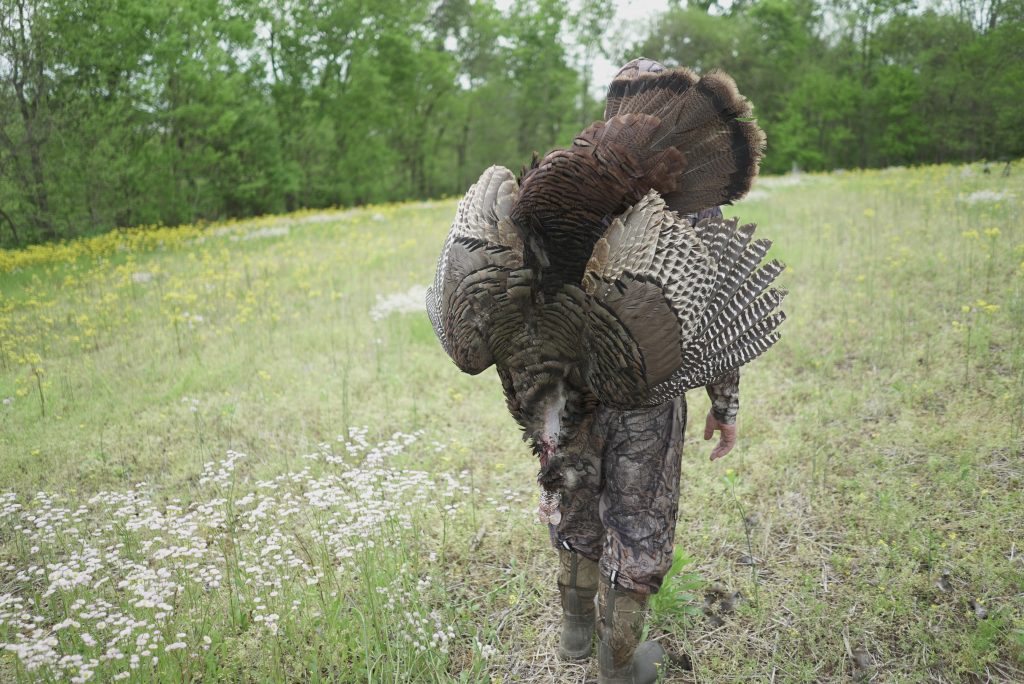
Steel is next on our list. While slightly more expensive, steel will be quite a bit lighter than your lead shots. This means less range on your pellets. Although this may be a turn-off for some hunters, this load does have it’s advantages. Steel is denser than lead, so when it does hit your target, it has a larger chance of blowing right through the bird and creating a quick kill shot. The softness of lead, on the other hand, has a tendency to flatten out more on impact. This may send your bird tumbling to the ground, but often gives you less penetration and potentially a slower kill on the bird as well as more pellets to pick out. Steel shot also holds a tighter pattern than lead due to its density, meaning more pellets will be in your grouping for the kill shot. So if you are often shooting in closer ranges, steel shot can be a great choice, as you get a nice tight grouping as well as good ethical killing power out of your shot. Not to mention you don’t have that toxicity that is associated with lead shots. If you are still looking to take some longer shots, you can try upping your shot size in steel to match the weight and range that you typically shoot with lead.
Bismuth is another non-toxic shot option Turkey hunters can consider. It offers an in-between range from lead to steel. Bismuth will be denser than your steel loads but lighter than lead loads of a similar size. They are also softer, or more brittle, than your steel loads. With their density and composition, bismuth loads often shoot relatively comparable to lead loads and will shoot a longer range than steel of the same size. As this is a fairly brittle alloy, hunters will tend to notice that some pellets will break on impact, however, this hasn’t seemed to take away from their killing ability. This feature also makes it a good non-toxic option for older gun users, as again, these loads won’t be as hard on the barrels of older guns. It also makes it easier on your teeth if you miss a pellet in the cleaning process and it makes it to the table. Bismuth has been making a comeback lately in the shotgun world as the popular tungsten loads have been rocketing up in price.
Finally, we have tungsten. Tungsten loads offer the densest and hardest pellets available on the commercial market. When it comes to Turkey hunting, these features are definitely big checkmarks. Denser pellets mean these shots will hold their velocity better, and you’ll get more range out of your shots. It also means that at any given range, your tungsten shots are going to have more hitting power. Being a hard pellet, they will also hold their form giving them better penetration than softer materials such as lead. Basically, if you are looking for your premium Turkey load, this is it! The one major downside that can be said of the tungsten shots is their price. They are NOT cheap, which is a deterrent for many hunters who don’t want to be pumping $$$ into a target board to pattern their gun, or for shooters that are taking a number of shots in a season. With that said, if you have limited opportunities to get out turkey hunting and you want to do everything in your power to not miss your shot at a bird, these can be well worth the investment.
Whatever shot you choose, remember they will shoot different for different firearms and different chokes. You will always want to get out before the season and pattern your gun with the choke and shot you intend to use during the season to know your grouping and help you make an ethical kill shot. Enjoy your time in the woods and happy hunting!



